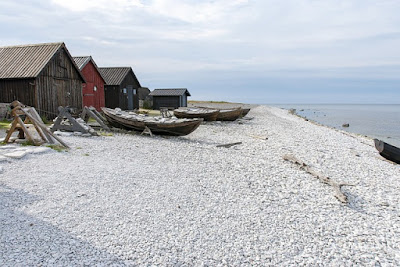I love my notebooks. I have a few different notebooks, some for work and my day to day writing, and some for my fiction writing,short stories, poems etc. I have a small notebook that I carry about in my handbag, along with numerous pens. Not that carrying a notebook around makes me a better writer. What it does is help me remember ideas that I might have while walking the dog or waiting for a bus, sitting it out in a waiting room or standing in the queue at the supermarket.
Ideas seem to strike me at the most awkward moment. I clearly remember driving my kids to school some years ago and seeing the daffodils poking their heads out from a crust of snow and suddenly a storyline arrived in my head. At that point in time the internal monologue was going something like this:
"Mirror, signal and move into the outside lane to turn right at the roundabout....a hand, fingers frozen in death, in among the daffodil stems...thump down on the hooter - bloody white van driver cut me up again...she pulls over and walks back along the verge - did she really see that?...why can't my daughter stop winding her brother up in the back seat?...it's freezing, early in the morning, fields swathed in freezing mist and she's not sure she ought to be doing this, she needs to get to work...another red traffic light, we're going to be late...then she sees the body and she knows who it is...must pick up some milk and drop it off to Mum on the way to the office..."
By the time I had parked up, the thrust of the idea had dwindles and even the kernel of it was largely forgotten and I've never bothered trying to pick it back up again. It might have been my breakthrough novel for all I know!
Still, not everyone would agree. And when the writer who doesn't agree is none other than Stephen King, you sit up and listen.
Stephen King on writing and notebooks
Powerful stuff. But the, Stephen King is a writing phenomenon all to himself and maybe his brain is not wired in the same way as your average writer's brain, and most of us are pretty well average. I, for one, need to rely on notebooks, or their electronic equivalent simply to trigger off the recollection of a detail. I jotted down a quick note when on the No.2 bus back from Europa Point on a journey home from work a couple of years ago, and a couple of months later, wrote it into a prize winning story. I've added it below - please read it and let me know what you think.
Meanwhile, with all due respect to one of the masters of storytelling, I love my notebooks, the blue one with beadwork on the front, my Star Trek one, my Flower Fairies one, my one that looks like a witch's grimoire, my grey one from Morrison - love them all!
Trouble for Tea
by Jackie Anderson
I only have to take one look at his face as he goes to step onto the bus and I know there will be trouble. The deep frown on that smooth brow is a giveaway. Then there’s that pout, pink and petulant, as he’s guided into the seats in the space where prams are normally parked. The trouble will get far worse if someone with a buggy comes in. Just like the old days, when my boy was young.
The boy flings his bag on the floor at his father’s feet. I can see the similarity, except the father’s face is dark with stubble like all young men seem to have these days. Lazy fashion, if you ask me, can’t get up in time to smarten up before leaving the house. Then again, with a kid like that, it can’t be easy, I should know, and the poor man has those sunken, red-rimmed eyes that tell of sleepless nights and exhaustion.
The bus lurches away from the kerb and I keep my eyes firmly on the view outside the window. It’s what I do every day at tea time. I get on the bus and ride to the lighthouse and back, a pretty route, each turn of the narrow road opening up to the magnificent blue of sea and sky. There I get a cup of tea and return on the next bus. It distracts me from the emptiness of the house now the kids have left home.
“Come on Harry, pick it up please.”
I’m going to find this all very hard to ignore.
“No.”
“You can’t leave it there, someone will trip over it.”
“I don’t want to!” the boy shrieks. I glance at some of the other passengers. They’re all disturbed, trying not to look. I remember all this very well.
The man rubs his chin. Beads of sweat are glistening on his brow. Maybe I should say something, but it’s been a long time since anyone wanted my help. The man picks the bag up and settles in a seat with Harry. I look away, not wanting to intrude in his difficult moment.
The boy is screeching, ignoring his father’s attempts to calm him down. The other passengers shift in their seats and I can hear their disapproval rumbling along with the engine.
“Stop that, Harry, you know you like to go to Club,” the man says. His voice is calm. I watch him. His face is flushed, eyes bright with an embarrassment he refuses to admit. I know his chest feels tight, his throat is constricting because really he wants to weep, to shed a lifetime of tears for the son he loves more than he can say but whom he can’t seem to help. But he won’t let himself weep because he knows he has to be strong, he has to be that special someone who can love that child, despite his tears and snot and his taking swipes with clawed fingers at his own father’s face.
“I hate it!” He punches and kicks, his screams turning into grunts, like a wild animal fighting the cage.
I’m squirming inside. It’s all too familiar. The red-faced father, the screeching kid spitting and scratching, the others, the rest of the world frowning and making you feel small, inadequate, breathless, as if drowning in disapproval. A woman at the back is making loud tutting noises. I hope she chokes on her own spittle. I’m angry now. “No upbringing,” says another.
That’s it. I’ve spent far too long moping, missing my family, keeping myself to myself. I know what to do, and if the man minds, well, I can always get off at the next bus stop and walk the rest of the way.
“Come on Harry, you’ll enjoy it once you’re there.” He is incredible, this man with pain and sadness in his eyes, the calm voice and the big hands fending off the blows. I rummage around in my handbag. I always carry the puppet around with me. It reminds me of my own little bit of trouble. He lives away now, a grown man with a job of sorts and enjoying life.
“Hello, Harry,” my voice scratches at my throat. The man’s blue eyes widen but he nods at me in approval. My hand in the puppet, I give a little bark. Harry glances round and his arms stop in mid-air.
“I’m Dotty the Dog,” I hurry on. Harry looks suspicious but listens.
“You have a huge voice for a little boy,” Dotty says.
Harry grins and wipes snot and tears onto his sleeve.
“And I’ve a really loud bark for a little dog,” I’m warming into my old routine.
“Shall we play a game?” Dotty suggests. Harry nods and before long we’re playing word games and he is sitting on his father’s knee. “We’re nearly at our stop,” says Dad. Harry’s smile vanishes.
“It looks like it’s my stop too,” I say and Dotty glares at me. Harry giggles.
“I’m Joss,” says the man, “and thank you, Dotty is wonderful, inspired.”
“My son, well, he’s grown up now, but Harry reminds me of him. Dotty used to help him settle too.”
“Is Dotty coming to Club, Dad?” says Harry, once we’re on the pavement.
“Perhaps you can join us for a cup of tea” suggests Joss.
“Oh, you don’t want an old dear in the way…” I begin.
“Can we get Dotty some cake?” interrupts Harry. I giggle. That’s the thing with kids. They’re so natural.
“Dotty prefers biscuits, but I will happily have tea and cake with you, so long as it’s no trouble.”
“No, I’m the one that’s trouble,” laughs Harry and he takes my hand.
“He’s a bit over the top sometimes,” breathes Joss, a fluster of bag and coats.
“Well there’s nothing better than a bit of trouble for tea,” I say. The boy in my right hand and Dotty in my left. Like the old days.
























